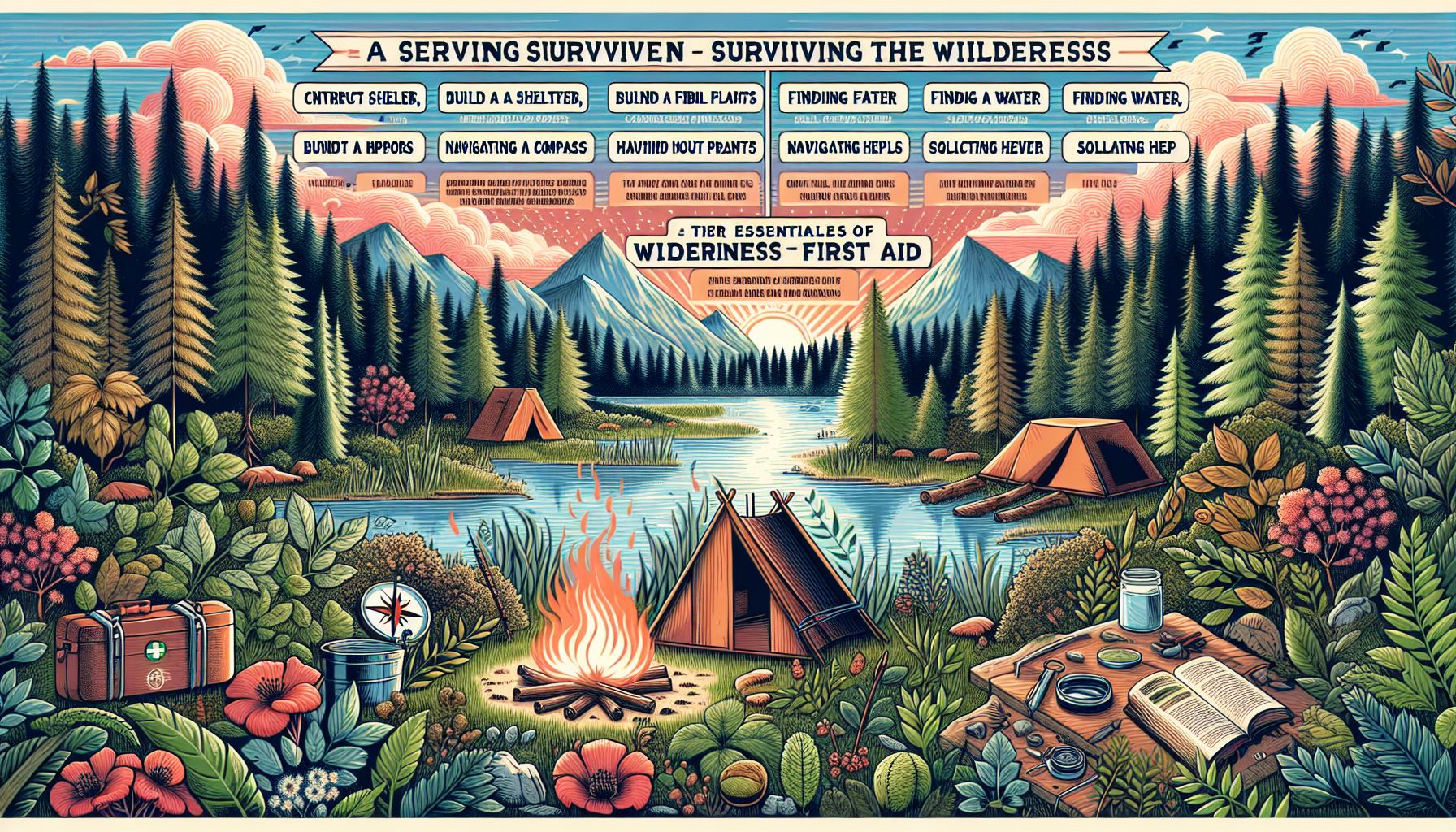Outdoor Survival in the Wilderness: A Guide for Outdoor Enthusiasts, Campers, and Explorers

Exploring the vast wilderness can be an exhilarating experience for outdoor enthusiasts, campers, and explorers alike. Being prepared for the unknown is the key to survival when venturing into the great outdoors. Whether you are planning a short camping trip or embarking on a long expedition, this guide will equip you with essential knowledge and tips to ensure your safety and well-being while surrounded by nature’s wonders.
The Basics of Surviving Outdoors
Surviving in the wilderness requires a combination of skills, resources, and planning. To begin, it is essential to develop a survival mindset. This mindset includes staying calm, evaluating your situation, and making informed decisions. Remember, every decision you make can significantly impact your overall well-being.
The first thing you need to prioritize in survival situations is shelter. A sturdy and waterproof shelter can protect you from harsh weather conditions, insects, and dangerous animals. Consider packing lightweight, easily assembled tents or tarp shelters in your backpack to ensure you’re always prepared.
Next, focus on gathering water. Water is undoubtedly the most vital resource for survival. Look for natural water sources such as rivers, streams, and lakes. It’s crucial to purify any water you find before consumption. Boiling, filtering, or using water purification tablets can help remove harmful bacteria and parasites, ensuring your safety.
Finally, acquiring food is a crucial aspect of outdoor survival. Although hunting wild animals may seem like a viable option, it requires considerable skill and knowledge of the local fauna. However, it’s always recommended to research local wildlife and learn basic hunting techniques before embarking on your outdoor adventure.
Outdoor Survivalists: Masters of the Wild
If you truly wish to become a seasoned survivalist, learning from the experts is vital. Outdoor survivalists are individuals who have honed their skills and have a profound understanding of the wilderness and its resources. Seek out training courses and workshops offered by experienced survivalists, where they will teach you essential skills such as building snare traps, fire-making techniques, and navigation without a compass.
A trained survivalist knows the importance of being resourceful, making use of everything that nature provides. They can identify edible plants, utilize natural materials for shelter, and even fashion tools from natural resources. Becoming a proficient survivalist requires patience, practice, and respect for nature.
Growing Food Organically: A Sustainable Solution
While hunting wild animals can be challenging, there are alternative ways to ensure a steady supply of food in the wild. Growing your food organically is an excellent sustainable solution for long-term survival. Pack a compact survival garden kit containing essential seeds, lightweight gardening tools, and biodegradable planters. These kits are designed to be easily transported and can save you from going hungry during extended stays in the wilderness.
Selecting the right plants for your survival garden is paramount. Opt for easy-to-grow vegetables such as tomatoes, beans, and potatoes. These crops not only provide essential nutrients but are also relatively undemanding to cultivate. Additionally, consider planting herbs like basil, mint, and rosemary, which can enhance the taste of your meals and provide medicinal benefits.
Edible Foods You Can Find in the Forest
In the wilderness, familiarizing yourself with edible plants can be a lifesaver. Forests are abundant with a wide array of vegetation that can supplement your food supplies. However, it is crucial to exercise caution and consult reliable field guides to ensure you correctly identify edible plants, as some can be toxic.
Many forests offer edible berries and nuts, such as blackberries, raspberries, hazelnuts, and acorns. These can provide essential nutrients and serve as a tasty snack while on your outdoor journey. Additionally, certain plants like dandelions, nettles, and chickweed are rich in vitamins and can be consumed in salads or cooked as a side dish.
Conclusion
As you embark on your outdoor adventure, remember that survival in the wilderness requires planning, knowledge, and a steadfast mindset. Prioritize shelter, water, and food, and proactively acquire the necessary skills to navigate and excel in the wild. Seek guidance from experienced outdoor survivalists and explore sustainable solutions like organic gardening and identifying edible foods in the forest.
By mastering these skills and implementing them into your wilderness excursions, you can ensure a safe, exciting, and rewarding experience surrounded by nature’s unparalleled beauty. So, gear up, pack your essentials, and get ready for an unforgettable journey into the heart of the wild.